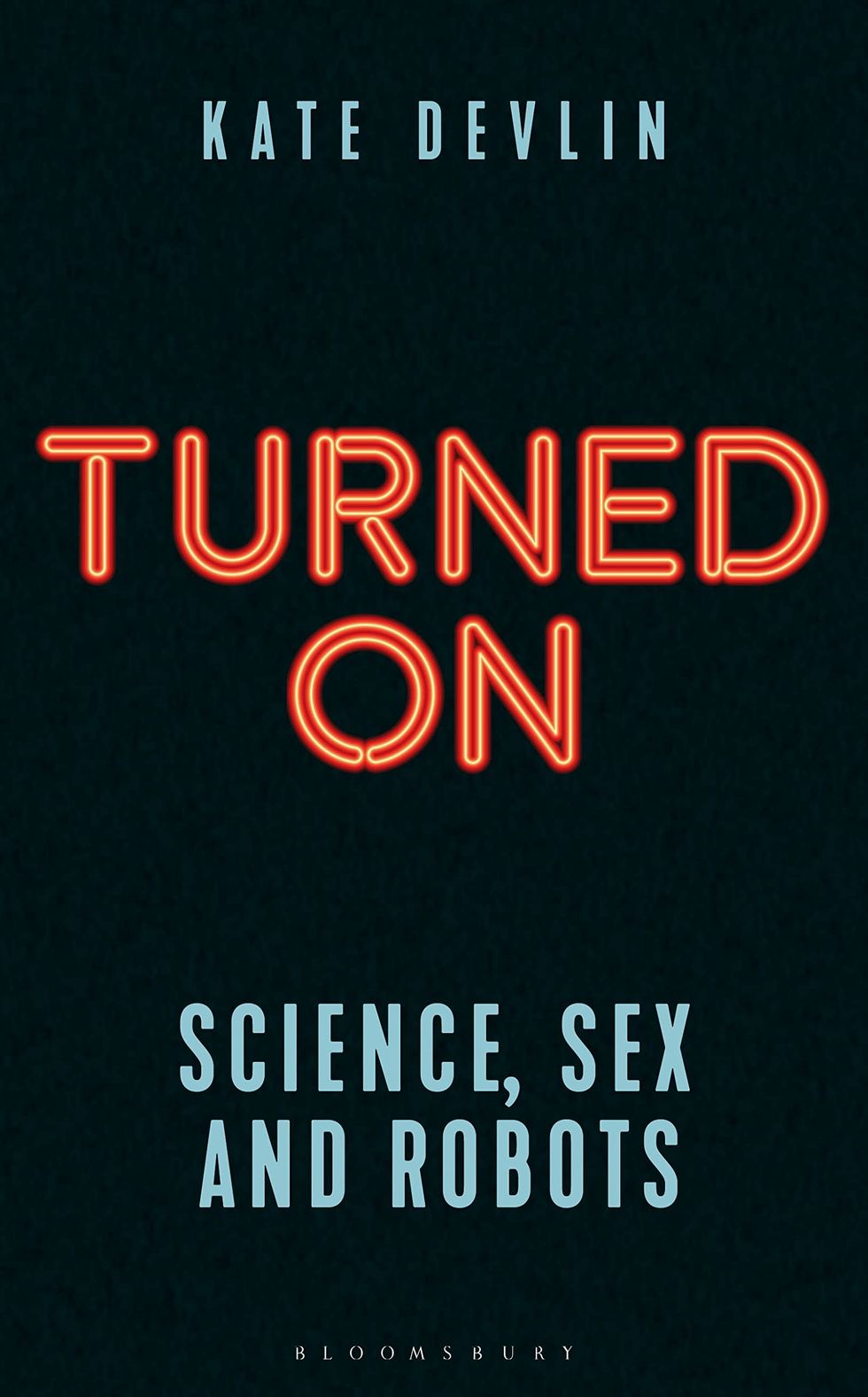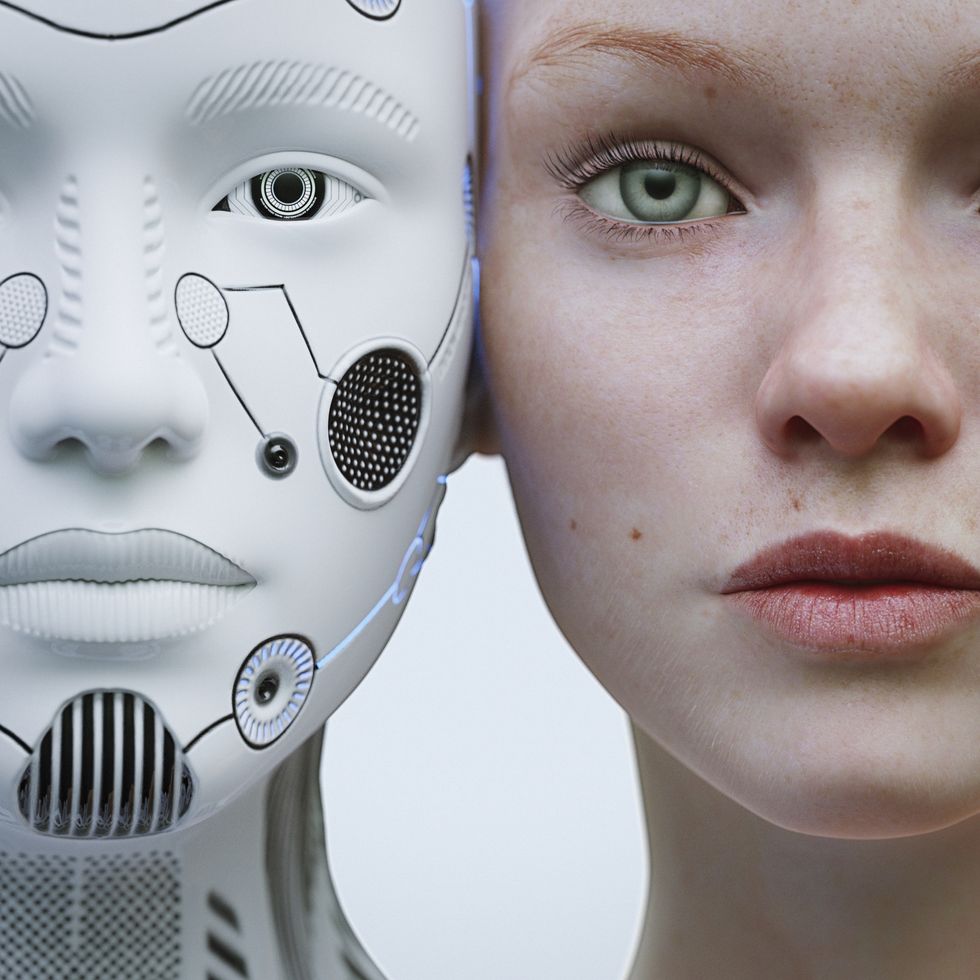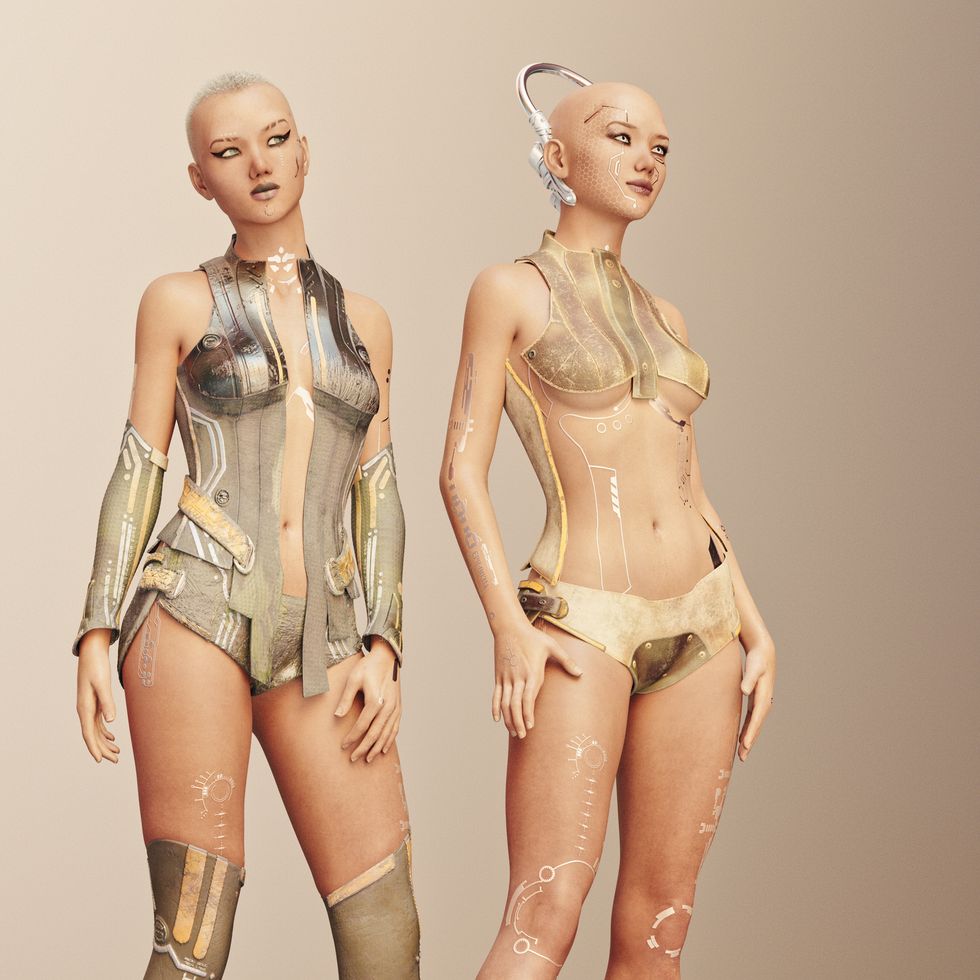Sex robots are a hot topic at the moment, and they're often spoken and written about as if they're everywhere - taking over our real worlds and becoming more popular every day. But do sex robots actually exist? And will we ever be able to buy a sex robot?
Sex robot expert Dr Kate Devlin, a lecturer at King's College London and author of Turned On: Science, Sex and Robots has the intel. Here she answers all of our questions about the world of sex robots.
First though, if you're feeling a bit out of the loop, sex robots are basically more sophisticated versions of sex dolls: humanistic machines that can be used for masturbation or sex acts. While there are a few sex robots out there, they're still very early in development and pretty expensive - generally costing several thousand pounds.
How do our ideas of sex robots compare to what they actually are?
"We have all of these ideas of fembots from science fiction: the 'guns for tits' robots, the beautiful robot in Ex Machina or the Buffybot. However, the reality is that there aren't even any for sale at the moment. There are a handful of workshops trying to develop them and a couple of prototypes, like the Harmony robot made by the company Abyss Creations. She's available to pre-order, but she's not actually being delivered to customers yet. That's the closest people have really got.
"As for what Harmony can actually do, it's not very much. She can't even stand up on her own. The only robotic bit is her head; she can smile, blink and turn her head. She has a standalone AI personality which works through an app on your phone - and then she basically has the body of a sex doll. But you can talk to her; she'll get to know you and store information about you, like a more sophisticated, sexy Alexa."
Is Harmony an example of a cis straight male view on what sex robots should be?
"Absolutely. This is a market by men for men. These dolls in particular are bought by straight men, and they tend to be in the form of a very reductive stereotype of femininity: narrow waist, big breasts, curvaceous hips, long blonde hair. It's all very Barbie-esque.
"There isn't much diversity and I think it'll remain incredibly niche, partly because they're difficult to make and are so expensive. We're talking upwards of $10,000."
Why do people want to buy a sex robot?
"Interestingly, the people that these are aimed at are interested in them from a companionship aspect. It's not: 'can I have a robot to have sex with?' It's: 'can I have a robot that fulfils the role of a companion?' That's emphasised in the marketing; it's something that creates intimacy and companionship, and the sex is almost secondary to that.
"People will give the dolls backstories and names and dress them up. It's not a delusional thing; it's more like a fantasy world, like role play. Others want to collect them as pieces of art, while some people are interested in them from an engineering perspective. There are a wide range of reasons."
Why do people react negatively to the idea of sex robots?
"There's worry from some who say that owning a sex robot means people will never be able to form real human relationships, but that's not necessarily true. There are people who own dolls and have perfectly normal everyday relationships. Personally, I don't want to judge what other people get up to in their own homes, and it's not harming anyone. We all have fantasies and some people want those fantasies to be in tangible form - and why the hell not?"
Why are more men buying sex robots than women?
"This tech just isn't being made for or aimed at women. They do do a male version of the doll [for women who are attracted to men], but it's not anywhere near as popular as the female versions. It's also very hard to find women who'll talk openly about owning one. Like a lot of tech these days, women tend to be an afterthought in the design process."
Will we ever see mass production of sex robots?
"I honestly don't think we'll ever see mass production. I think it'll remain fairly niche, like the community of sex doll owners that exists now, but I can't see it becoming commonplace. The novelty is there initially, but there are other forms of technology that can be used for pleasure, and AI companions are a cheaper companionship option without needing the whole robot."
What other kinds of sex tech already exist?
"We already have smart sex toys now, including sex toys that someone else can control from a distance. And there are other ideas out there. I ran a prototyping project and one creation was robotic tentacles that, when you squeezed a controller, would curl around your body like a hug. It fits any body type, and it's not saying 'you need a penis or a vagina for this'.
"Another project had moisture sensors on a vaginal egg, which triggered a giant paper peacock's tail to open, like a visible sign of arousal. You could even drive prosthetics with that [technology]. There were also sensuous shawls and sex blankets, which meant you could feel sensors against your skin when in a virtual reality environment.
"We also already have sex apps too, where you can discuss things about your relationships, like your favourite fantasy, for example. There's a lot of closeness that can be fostered via technology, especially if people are hesitant to talk about things face to face."
How worried should we be about privacy and security?
"There have been vulnerabilities revealed in sex toys, like with a chastity device where the lock could be overridden by the company, meaning users wouldn't be able to unlock it. So, the person you think is domming you, it's actually the people who manufactured the device - and that's really problematic.
"Other data breaches have occurred with sex toys too. Sexual data is sensitive, because it can lead to harm. For example, in places that don't tolerate homosexuality, people's lives could be at risk.
"It throws up a lot of questions about consent as well. So, if you have a smart sex toy and you give someone you trust control over it from a distance, how do you know it's really them? Is it sexual assault if someone else takes over? It's a real grey area, and the law finds it really hard to keep up, especially with tech laws.
"Still, with smart sex toys, there are people who work to check them for security flaws."
Could sex robots could be a solution to incel culture [the 'involuntary celibate' movement associated with misogyny and violence against women]?
"There was talk that 'if incels had sex robots, then that would solve that problem,' but I don't think that's how it works. You can't engineer this out of people. There are so many really worrying radicalised factors going on."
How did you become an expert on sex robots?
"I started my career as an archaeologist, so I was already interested in how people interact with technology. From there, I ended up doing a Master's and a PhD in computer science, which meant researching how people respond to emerging tech like artificial intelligence. Then, the sex part: I mean, who's not interested in that?
"One day, at a conference, we were talking about whether we should ever give robots empathy. It's a question that comes up a lot: should we get robots to feel things that humans can feel? And of course, that conversation turned to sex as well. I'd been seeing so many headlines about sex robots, and they seemed really dystopian. I just didn't quite believe them, so I wanted to find out more and started researching them myself."
Finally, do you think we could all benefit from a sex toy?
"Absolutely. In academia, a lot of the time you're expected to research sex because of health or biology or psychology, whereas I'm researching it because I think people enjoy pleasure, and because sex is such a fundamental part of our existence as humans. If we can use technology to help us feel good and happy about ourselves, then that's a really lovely thing."
You can follow Dr Kate Devlin on Twitter.
This interview originally appeared on an episode of Cosmopolitan's All The Way With... podcast.
















